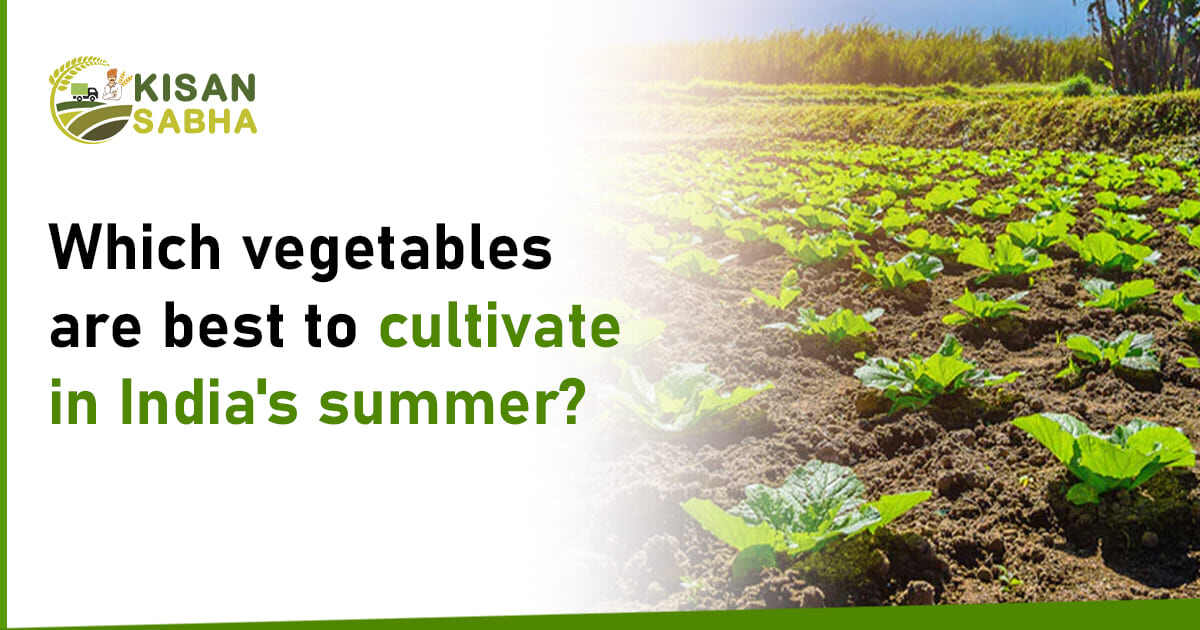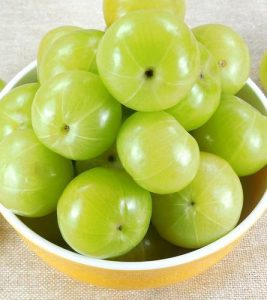Growing a variety of vegetables is ideal in the summer. The hot Indian summer is ideal for summer vegetables that thrive in warm regions, adore long days, and prefer to grow in full sunshine. The summer season in India runs from March through May. Summertime health issues including dehydration, vitamin deficiencies, and skin allergies make it even more crucial to consume seasonal veggies. During the warmest season, it keeps your body cool and avoids health problems. As a result, you no longer have to limit your beverage options to iced ones. compared to other plants, lignans. Therefore, this is the perfect time to read up on summer veggies. You may read this article to find out what vegetables you should cultivate and consume this summer.
These vegetables to cultivated in India’s summer
Brinjal
Brinjals are recognized to have an important part in antioxidant activity due to their high fiber level and phytonutrient content. When selecting brinjals, look for ones with smooth, tight skin that feel weighty for their size. Additionally, brinjals with mushy areas or wrinkled portions should be avoided. This vegetable is packed with minerals and vitamins and comes in a variety of colors ranging from purple and black to a near-translucent white.
Cucumber
Cucumber has a high water content (96%) and the capacity to regulate body temperature, making it a hydrating and refreshing remedy in the heat. Because it is a member of the squash family, it efficiently flushes toxins from the digestive tract and aids in digestion. Cucumber is also high in magnesium, potassium, and fiber, which helps to manage blood pressure. If you wish to dissolve kidney or bladder stones, cucumber is an excellent choice!
Bottle gourd
Bottle gourd, also known as lauki, is believed to restore system function by producing a cooling impact. This relaxing vegetable prevents acidity and aids digestion due to its high water content. Its moisture content also quickly quenches thirst, keeping the body refreshed throughout the summer. Bottle gourd juice combined with a teaspoon of lemon juice is an excellent diuretic, increasing urine output, and further detoxifying the body.
White onions
White onions have a marvelous anti-aging impact on our bodies and are proven to boost physical strength and stability. It not only improves digestive power but also treats bleeding diseases such as nose bleeding and bleeding piles. It calms your mind and helps you stay calm even in the sweltering heat.
Pumpkin
Pumpkin, a popular garden vegetable, is a summer joy for both your health and your taste senses. They are high in antioxidants and vitamins, low in calories, and high in flavonoid polyphenolic antioxidants (such as lutein, xanthin, and carotenes). It is a fast-growing vine that grows in the same manner as other Cucurbitaceae families (cucumber, squash, cantaloupes, and so on).
Okra ( Lady Finger)
Okra is a blooming plant that is also known as ladies’ fingers or bhindi in several regions of the nation. This vegetable pod is high in vitamins and minerals including A, B, C, E, and K, as well as calcium, iron, magnesium, potassium, and zinc. As a result, eating okra promotes immunity, digestion, and eyesight. It also enhances skin health since the presence of Vitamin A oxidants aids in faster healing, the development of scars and acne, and the elimination of wrinkles.
Spinach
Spinach, one of the most popular and healthful greens, is a superfood packed with nutrients in a low-calorie package. They benefit skin, hair, and bone health. It is important for diabetes treatment since it includes alpha-lipoic acid, an antioxidant that has been demonstrated to reduce glucose levels. They are also high in beta-carotene, which has been found to reduce the risk of getting asthma.
Vegetables during summer: Typical gardening advice
Whatever summer vegetable you decide to produce, bear in mind the following growth advice.
Grow locally: Select summer crops that will do well in your location. Choose veggies with a shorter maturation period if the growing season is shorter. In hotter locations, remember to pick vegetables that can withstand heat.
Watering: Irrigate plants gently each morning to slow evaporation and prevent foliar infections. Choose drip irrigation to save water and lessen disease outbreaks brought on by overhead watering.
Mulch: To conserve water, lower soil temperatures, and control weeds, cover your plants with a one- to two-inch layer of compost.
Provide shade: In warmer climes, partial shade is especially beneficial during the warmest part of the day for summer crops including beets, broccoli, peas, greens, and cauliflower. Make sure to place the vegetables in a shaded location from the intense afternoon sun.
Successively plant: Throughout the summer, resow summer crops like beets, bush beans, and lettuce every two weeks to maintain a steady harvest.
Harvest: To preserve summer veggies crisp, fresh, and flavorful, pick them early or late in the day.
Summer veggies provide spice and diversity to our seasonal dishes, and many vegetables thrive in the summer. Furthermore, veggies often offer a wide range of health benefits. Summer veggies are no exception. They boost our energy levels and strengthen our immune systems. Furthermore, as the seasons change, all veggies assist us to stay in shape.




